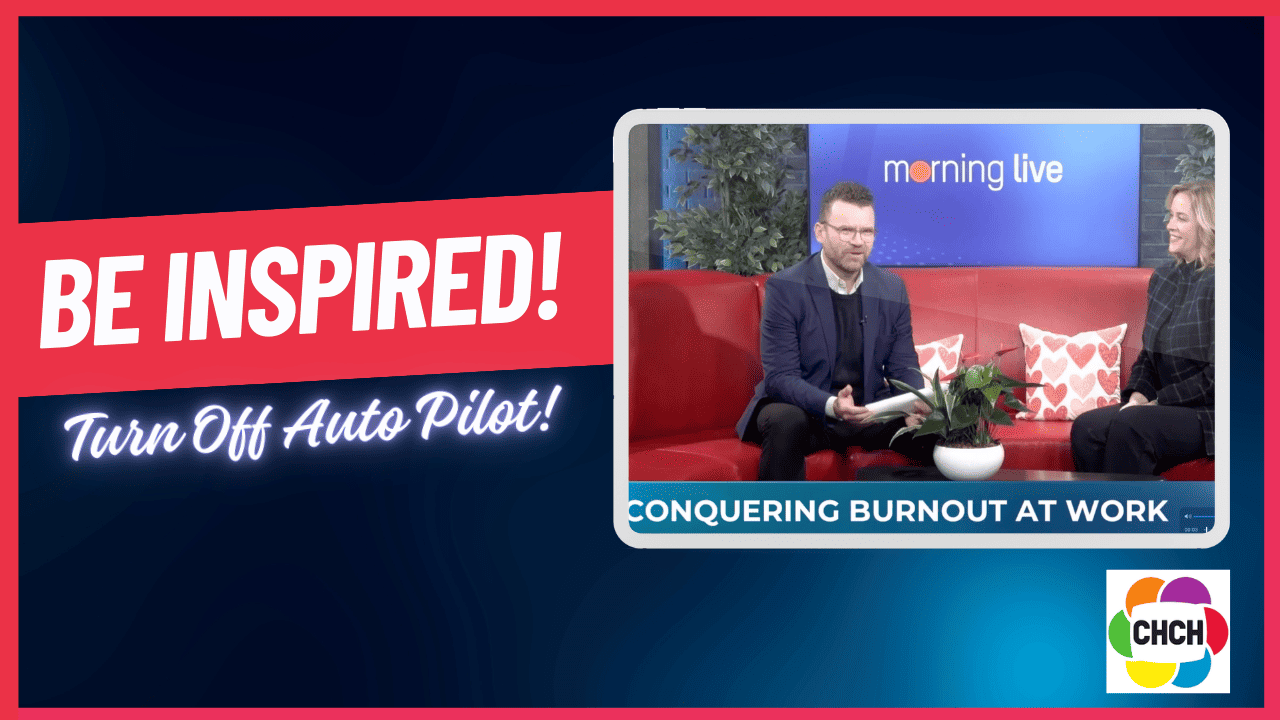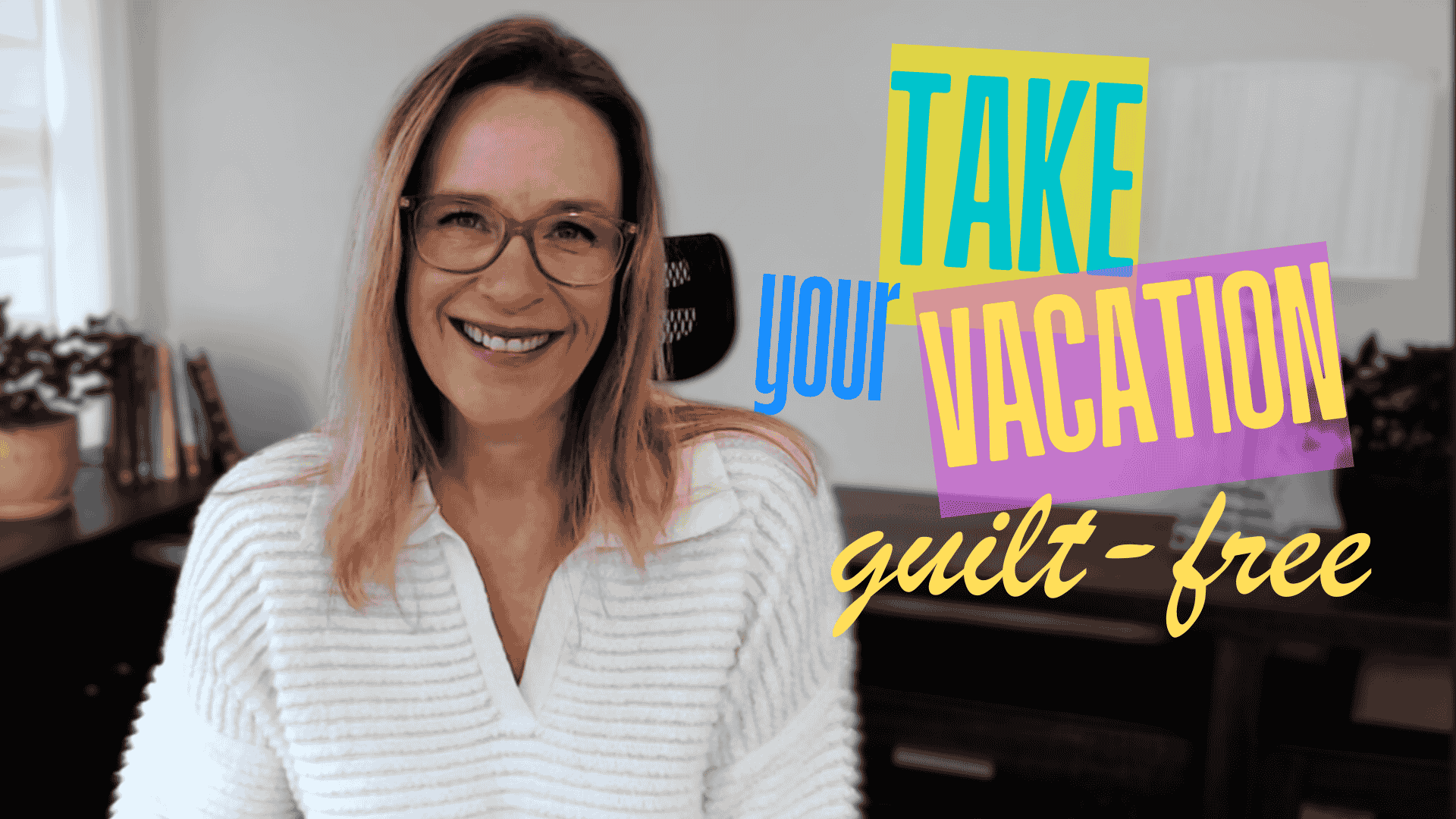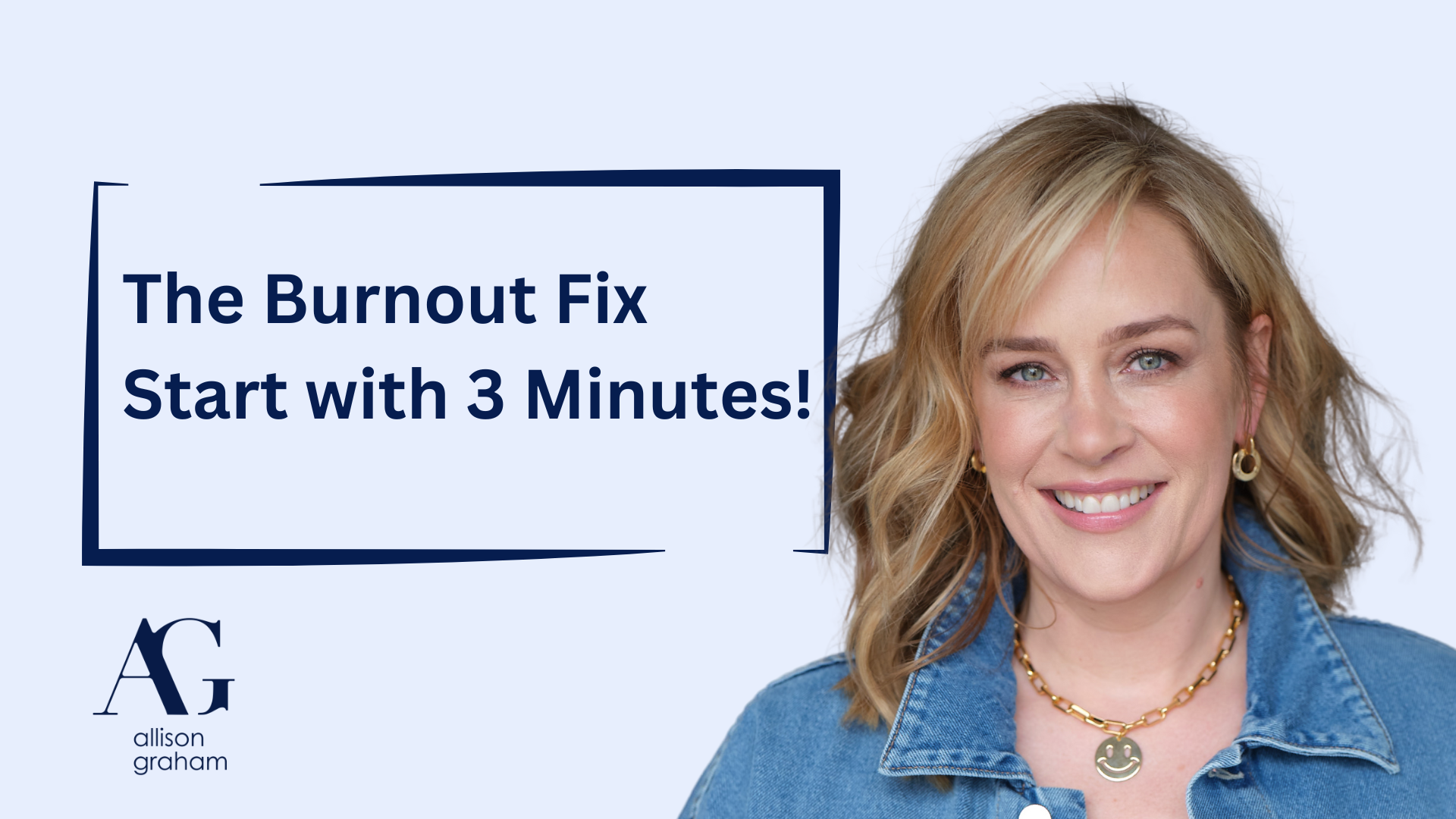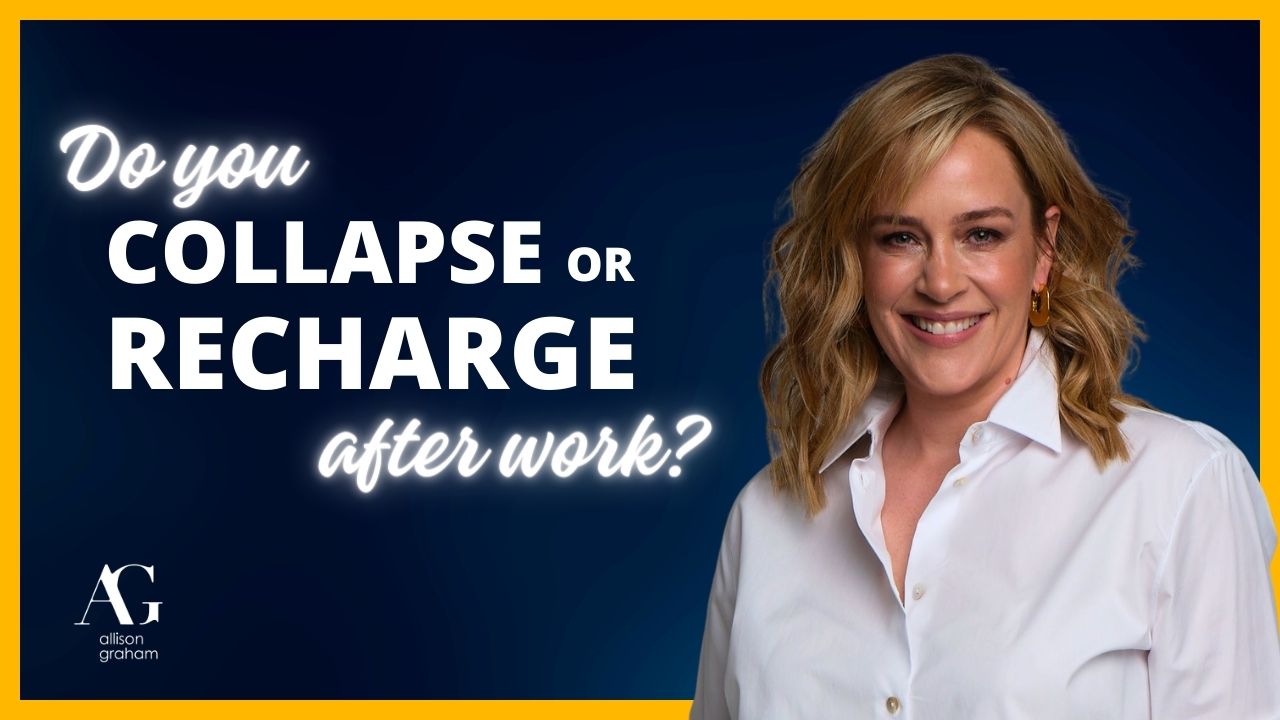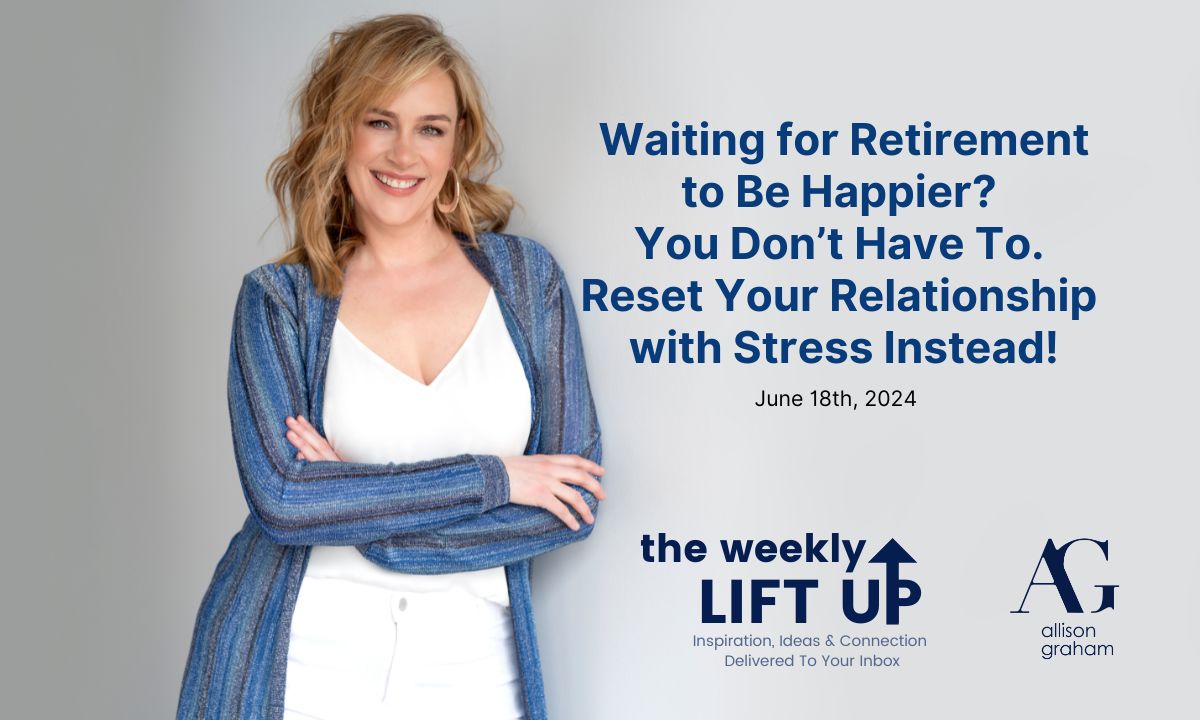Looking for a shift to feel more inspired at work? Here’s my interview with Tim Bolen on how to Recover from Burnout at Work and in life.
Step 1: reconsider your relationship with stress.
Step 2: turn off auto pilot
Step 3: find those recurring moments of angst
Step 4: be strategic about fixing one at a time so they drain you less.
Transcript of interview:
Tim Bolen CHCH 00:00
Okay, question for you, um, are you burnt out and kind of I don’t know checked out at work. Here’s the big January, which is in the in the rearview mirror in February, which we’re looking ahead to, there are a couple of the toughest months to get through. So we’re joined with the author by the author of the stress illusion, Allison Graham to kind of get that, get that spark back. Do you believe that the first two months of the year are the toughest?
Allison Graham 00:21
I think there are some factors that intensify burnout, but like the bills coming in, it’s maybe cooler or just a little bit grayer. But I think burnout is an issue all year long. And it just gives us a great reason to talk about it.
Tim Bolen CHCH 00:33
Right. Okay. So what do you what do you talk about to your clients? First, what’s the first thing you say?
Allison Graham 00:38
It’s really about reframing stress. And so often when people are complaining, like I imagine everybody getting ready right now, and they’re like, I gotta go to work. And if they’re feeling that sense of burnout, that’s going to impact everything. And it tends to be a bit of a spiral downhill, right? Like, once you start feeling overwhelmed, then every little bit to sort of adds to it. And so it’s really about how do we get clear on what’s happening? How do we understand how we’re reacting to it? And potentially, because of the human experience, making it harder than it needs to be? And then we work into solution activation? So that really is my framework? Is
Tim Bolen CHCH 01:15
that what the stress illusion is? What is that illusion?
Allison Graham 01:18
Well, the illusion, there has to be something wrong. Because here’s the thing, we are more educated now than ever, on how to deal with stress, how to manage our mental health. And like, you just have to go to social media and see what I’m supposed
Tim Bolen CHCH 01:31
to talk about it now where you couldn’t talk about, you could never use that with mental health that was in the thing.
Allison Graham 01:36
That’s right, but it’s not working. So why then if we’re more educated, our stress levels on the rise, stress leaves in companies, leaders, and when I talked with across the country are saying, I’m concerned, because my people are leaving, like we have the highest stress leave rates that we’ve had in years. And it’s across all industries. So there’s a disconnect. And I believe that how we’ve been taught to deal with stress is actually flawed. I think it’s really important to have self care and to exercise and meditate and all of those things. But if you’re going to work, and you know, eight to four, and you’re building your stress hormones all day, and then going to the gym, so you’re not, you know, Cranky to your family. Because you have to release those. We got to stop building them in the daytime. So we can do better work.
Tim Bolen CHCH 02:25
Okay, so how do we build them?
Allison Graham 02:26
Well, our reaction to what’s happening? See, the reason I think a lot of people want to quit their job when they get overwhelmed and feel burned out, is because they think that it’s about the external circumstances, that if I could just I call this ‘When X than Y Thinking.’ When I just get that next job. When my kids finally grow up. When my kids start listening to me in the morning, and we don’t have a chaotic morning, right, THEN it’s okay
Tim Bolen CHCH 02:52
Says the guy never at home in the morning to deal with it.
Allison Graham 02:56
Right, aren’t you? That’s one way avoidance. So we have to look at what’s happening, because there are real challenges that deserve our stress hormones, those survival stress situations, right? If you are in financial peril, if you are dealing with some sort of a trauma, we have to honor that. And so often we in society, get this backwards, right? We say, you know, you know if somebody has gone through a divorce or big, maybe somebody they love has passed away or something. They say I’m fine. You’re not fine. You just went through something that’s absolutely core shaking. But yet, when you say how are you on just a regular days, oh my gosh, I’m so busy, busy, busy. And we’re dramatizing all of the normal stuff.
Tim Bolen CHCH 03:45
We’ve got a minute left. Allison, if there’s somebody watching right now, that is stress. Is there something that they can do today to help today?
Allison Graham 03:51
Yes, notice those repeating moments of angst, say, Okay, this is constantly causing the irritation, and then look at step back, look at it objectively, almost like it’s a movie and say, How can I strategically fix that one thing? Can I change how I’m interacting with my co worker? Can I stop complaining about the fact that everybody else is dropping the ball? Right? And if you are a leader, give your team the space and the grace to have the big conversations so that collectively, you can lower the stress levels in your office.
Tim Bolen CHCH 04:27
That’s the one thing to do today. The Stress illusion. When is it coming in?
Allison Graham 04:31
It’ll be out the spring. Yeah, that’s the plan. So but there’s lots of information online already, like videos and everything to help people I really believe if we shift how we’re approaching stress, we can start to see it like it’s so cool, like and inspiring. Yeah, that’s the plan.
Tim Bolen CHCH 04:48
Great job, great to meet you. Come back anytime. You come back too because morning live is still coming
